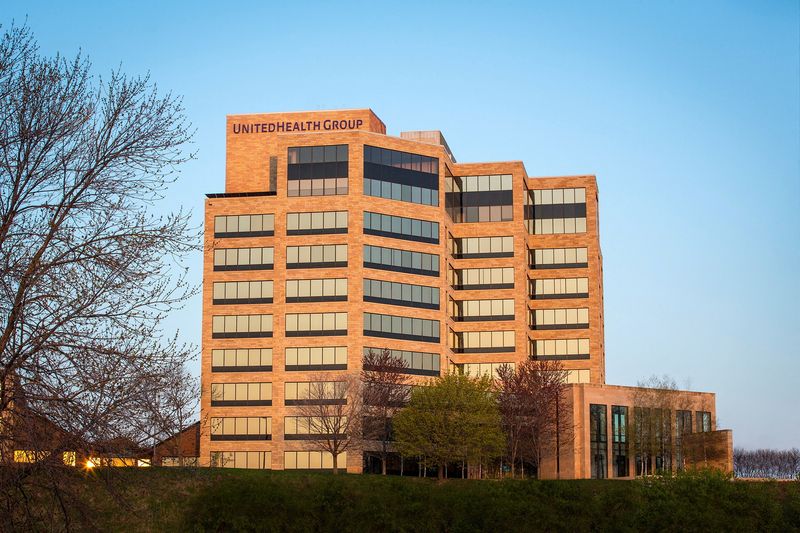By Sriparna Roy and Leroy Leo
(Reuters) -UnitedHealth Group said on Tuesday it expects the hack of its Change Healthcare (NASDAQ:CHNG) unit to cost the company up to $1.6 billion this year but maintained its 2024 earnings forecast, suggesting a less severe impact of the cyberattack than many on Wall Street had feared.
Despite the massive disruptions, the healthcare conglomerate beat estimates for first-quarter earnings as medical costs dropped from higher rates hit late last year, sending its shares up 5.3%. Through Monday's close, United shares had fallen nearly 15% since it disclosed the ransomware attack on Feb. 21.
UnitedHealth (NYSE:UNH)'s upbeat results drove up the Dow Jones Industrial Average on Tuesday. Shares of some rival health insurers including Elevance, CVS Health (NYSE:CVS) and Humana (NYSE:HUM) were also up, with Humana climbing more than 2%.
The hack at Change, a provider of healthcare billing and data systems and a key node in the U.S. healthcare system, disrupted payments to doctors and healthcare facilities nationwide for a month while taking a harsh toll on community health centers that serve more than 30 million poor and uninsured patients.
The health insurer relaxed, or removed, prior authorization processes for some claims following the hack, stoking concerns of an increase in medical costs. Executives said on Tuesday that these have recently been reinstated.
There were also delays in claim submissions as medical care providers, unable to access the Change system, struggled with paperwork.
"We’ve made substantial progress and we will not rest until care providers’ connectivity needs are met," UnitedHealth Chief Executive Andrew Witty said on a conference call to discuss results.
UnitedHealth has so far provided advance funding worth more than $6 billion to certain healthcare providers. While several of its major services have resumed operations, many more continue to reel from the impact of the outage.
Change's pharmacy claims and payment management businesses are 80% functional, and the company will bring more products online in the coming weeks, according to Roger Connor, CEO of UnitedHealth's OptumInsight unit, which runs Change. The company believes Change will return to its baseline performance next year.
Connor said he is confident Change can bring back customers who had to go to rivals because of the outage.
'NOT AS SEVERE'
The company said it had already booked $872 million in costs related to the data breach in the quarter, most of it as one-time items.
Still, UnitedHealth backed its 2024 adjusted profit forecast of $27.50 to $28 per share. Disruptions from the hack are expected to impact profit by $1.15 to $1.35 per share this year, the company said.
"The impact of the hack is not severe as expected, especially seeing that they maintained their adjusted earnings outlook for the year despite the business disruption," said Gerrit Smit, head of global equity management at investment firm Stonehage Fleming, which held more than 90,000 UnitedHealth shares as of the end of last year.
Morningstar analyst Julie Utterback said demand for medical care trends were in line with management's expectations, which should be a relief to industry investors who have been concerned about those elevated costs.
UnitedHealth reported a rise in medical care ratio - the percentage of premiums spent on medical care - to 84.3% from 82.2% a year earlier. The company's fourth-quarter ratio was 85%, which it had blamed in part on older Americans seeking respiratory syncytial virus (RSV) vaccines and receiving additional medical services.
UnitedHealth has yet to disclose the amount of personal data that was breached in the hack. It must report that information within 60 days as required by federal law.

For the quarter, UnitedHealth reported a profit of $7.16 per share, excluding a hit of 25 cents from business disruptions caused by the data breach, compared with the analysts' estimates of $6.61 per share, according to LSEG.
The company recorded a net loss of $1.53 per share due also to a $7 billion charge related to the sale of its Brazil unit, Amil.